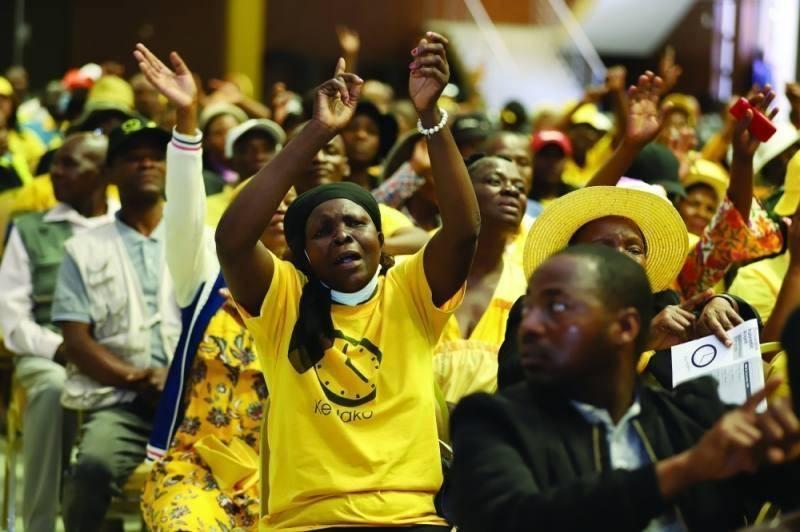By Makutu Manneh
Africa-Press – Gambia. Political analyst Essa Njie has questioned the United Democratic Party’s (UDP) decision to once again field Ousainou Darboe as its presidential candidate, arguing that the party’s long-standing leader has consistently failed to win the mandate of Gambian voters.
Njie noted that Darboe’s electoral record demonstrates a steady decline in public support over the years. In the 1996 presidential election, Darboe secured 35.84% of the vote, but his share dropped to 32.67% in 2001 and further declined to 26.69% in 2006. His worst performance, Njie stressed, came in 2011 when he polled only 17%, compared to Yahya Jammeh’s overwhelming 72%.
“In the 2021 presidential polls, Darboe’s performance was bad again,” Njie recalled, “with 27.72% of the vote, compared to President Adama Barrow’s 52.23%,” he noted.
According to Njie, these results should have prompted the UDP to reconsider its strategy. “Data has shown that Mr. Darboe has been consistently rejected by Gambians, and I think the UDP and Darboe himself could have thought otherwise and presented an alternative candidate for 2026,” Njie said.
Njie argued that Darboe’s lack of political viability is evident not only from his historical record of electoral defeats but also from recent findings by CepRass and Gambia Participates, which indicate that his chances of winning remain limited.
While acknowledging that Darboe has a constitutional and democratic right to contest elections, Njie emphasized the importance of party leaders respecting the principle of term limits within their own structures. Such a practice, he said, would create space for new leaders to emerge, rebrand their parties, and present more substantive policies that could improve their chances at the polls.
Njie also criticized Darboe’s position on term limits, arguing that had he been elected president, he likely would not have championed the idea. In Njie’s view, Darboe’s decision to once again seek his party’s presidential nomination suggests that, like President Barrow, he is not a strong supporter of term limits.
According to Njie, Darboe’s continued hold on the UDP leadership and candidacy demonstrates that he would have been no different from former President Jammeh or the current president, as both have shown little willingness to relinquish power under the pretext of party unity.
Njie further questioned the feasibility of opposition unity against the incumbent, noting that the history of coalition politics in the Second Republic casts doubt on such prospects.
“From the 2006 disintegrated NADD to Coalition 2016, it is unlikely for the opposition to come together for a possible two-way race with President Barrow. I think, partly, experience from Coalition 2016 will hinder the possibility of a similar one, although not impossible. So, we might end up seeing fragmented alliances as we approach 2026,” he expressed.
Njie, however, maintains that the UDP still has an opportunity to unseat the incumbent if it adopts a strategic approach and carefully considers its choice of candidate. “It is important for the UDP to understand that while Gambians may not necessarily believe that the party will effect any significant change to the country’s current situation, a good number, based on anecdotal evidence, believe that they are the party, of course, together with other opposition forces.”
With the 2026 presidential election on the horizon, the question remains whether Darboe’s sixth bid will finally deliver victory.
Source: Kerr Fatou Online Media House
For More News And Analysis About Gambia Follow Africa-Press






